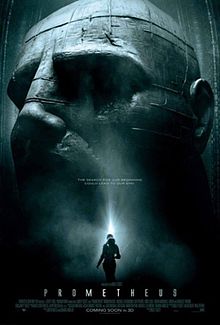
Okay, so the simple fact is that I will watch any sci-fi movie by Ridley Scott. The man does it well.
But I’m noticing a theme, here.
Alien; Blade Runner; Prometheus; and Wikipedia tells me that he’s looking at doing film adaptations of The Forever War and Brave New World.
Instead of doing work in the general theme of “the future sucks”, I want him to do a movie — ideally, called Epimetheus — in which the future, while still having potentially cataclysmic conflict, fundamentally rocks. I’m imagining him teaming up with Iain Banks to do something set in the Culture universe, for example, or something with sentient von Neuman Probes (easy conflict: there’s a replication limit, but a malfunctioning probe starts replicating without limit; we need to stop them, but they’re sentient, so killing them is wrong …)
Yes, ultimately, I’m just whinging that most sci-fi literature is distopian rather than utopian, but I don’t think I’m being naïve in wishing for it. I think there really is market demand for a positive vision of technology and the future, with the most obvious example to cite being Ironman.
This article and chart take a look at how far in the future sci-fi has been set at the time of writing over the last century and a half (the 1980s in particular, but also the 1970s and 1990s, saw a swathe of novels set only shortly into the future, presumably therefore suggesting that the authors imagined that the technological and cultural environments they were describing might “soon” come to be).
I’d love to see something similar in terms of how positively or negatively the author views their imagined future. Was there ever a period offering up a swell of positively themed novels, or am I letting Iain Banks and David Brin have too much influence over my memory?

